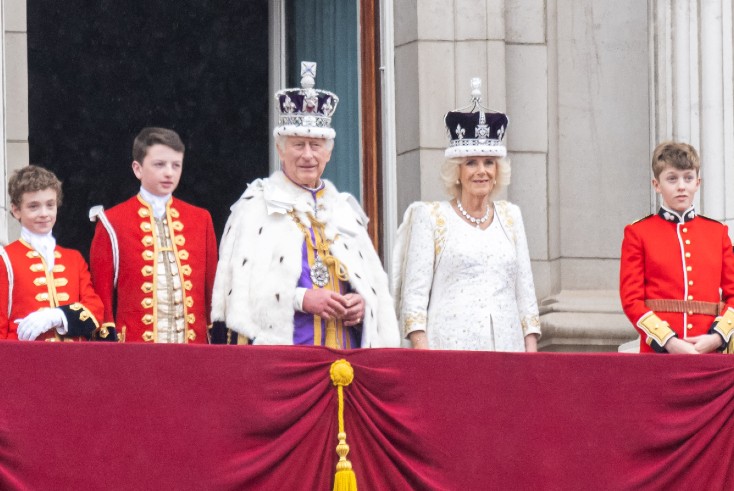The coronation, royalty and the media: a rare opportunity missed

Opinion
In an excerpt from an essay for a new book, Sir Trevor Phillips poses a number of fundamental questions about the British monarchy, the British media, and their relationship.
Few issues test the craft of journalism more keenly than coverage of the British royal family; the recent coronation provided a lens through which we can assess the health of our trade.
Our job is to add to the understanding of the citizen by reporting comprehensively, independently, and dispassionately; and to offer insights that those not paid to opine, and too busy to think deeply about the future of the monarchy, might appreciate. After the anointment of King Charles III, the best that can be said is that we achieved that outcome patchily.
Most of all, we failed to ask the most important question: what is the monarchy for?
On the plus side
There’s no doubt that the colour and drama of the event could hardly have been more fully reported. Even media which was self-consciously sceptical about the institution devoted space and time to the preparation, the ritual and the aftermath.
Whatever the citizen’s taste, there would have been enough pictures, reportage and commentary to satisfy even the most enthusiastic or cynical reader listener or viewer. Undoubtedly, that was driven by the fact that this was such a rare event: it hasn’t happened for seven decades and is unlikely to take place for another fifteen or twenty years.
To my own relief, little of the coverage was devoted to the marginal: speculation about relations between the King’s sons and the absence of Meghan, the Duchess of Sussex. It was to the credit of most media that they resisted the noises off from California designed to place the Netflix division of the royal firm in the spotlight.
The television reporting was spectacular, and what I saw of the live coverage seemed well-informed. Kudos to my Sky colleague Alistair Bruce (supplemented by the star power of Joanna Lumley) for his thorough immersion in the whys and wherefores of the parade.
On the not-so-good side
Were we independent and dispassionate? Up to a point, Lord Copper. Most of the noise around the King’s supposed unpopularity has died down.
No one writes any more about the insane proposition that the Crown might skip a generation — a notion that, however entertaining it might be for daytime talk show hosts, is just nonsensical in the context of an hereditary monarchy, whether one likes it or not.
The transformation of Queen Camilla from ‘the most hated woman in England’ to a book-loving, doughty campaigner for women’s rights carries a whiff of media hypocrisy; the woman herself has barely changed, but our fickleness is on full display now that editors know that she’ll be there for the long haul and they’ll need to get on with her.
The highlighting of the dim-witted police handling of a tiny protest seemed to me to be the media’s apology for not being able to find reason to carp at the main event. It is a feature of contemporary journalism that whatever the authorities do, even if they do it well, there must be shortcomings found and focused upon, no matter how disproportionate the degree of attention is relative to the degree of failure.
The republican sabre-rattling of the leaders of two Caribbean ministates with a population of fewer than 150,000 people between them falls into the same category; next time Blackpool or Brighton decides to issue a declaration of independence I expect front page coverage.
The way forward for royalty and the media? The shame of this is that this should have been an opportunity to get past the personalities and the prospect of republicanism being used as part the negotiation over aid budgets. Little was written or said about the future role of the King.
At a time when faith in politics is declining, when the nation is divided in various ways, there is an obvious role for the sovereign, who represents the state rather than the government, to provide a steadying hand and a guarantee of unity. How he does that and whether he has displayed the capacity to meet the task should have been the stuff of serious commentary. Instead, most opinion divided according to whether writers liked the individuals — Charles, Camilla, William, Kate — or not.
Sadly, in the welter of opinion that treated the coronation as a souped-up version of Strictly Come Dancing, we saw, heard, and read little about the role of the monarchy in our democracy.
Perhaps, before asking what royalty is for, we need to remind ourselves what the media’s purpose in a modern state is; if it is to help the citizen understand the role of the monarchy in modern times, we still have much work to do.
Sir Trevor Phillips is a columnist on The Times, presents political programmes for Sky News, and is vice-president of the Royal Television Society. He was formerly head of the Commission for Racial Equality.
Reporting Royalty is published by MGM Books and available on Amazon in paperback, Kindle, and eBook formats. Contributors include The Media Leader‘s weekly columnist Raymond Snoddy.




